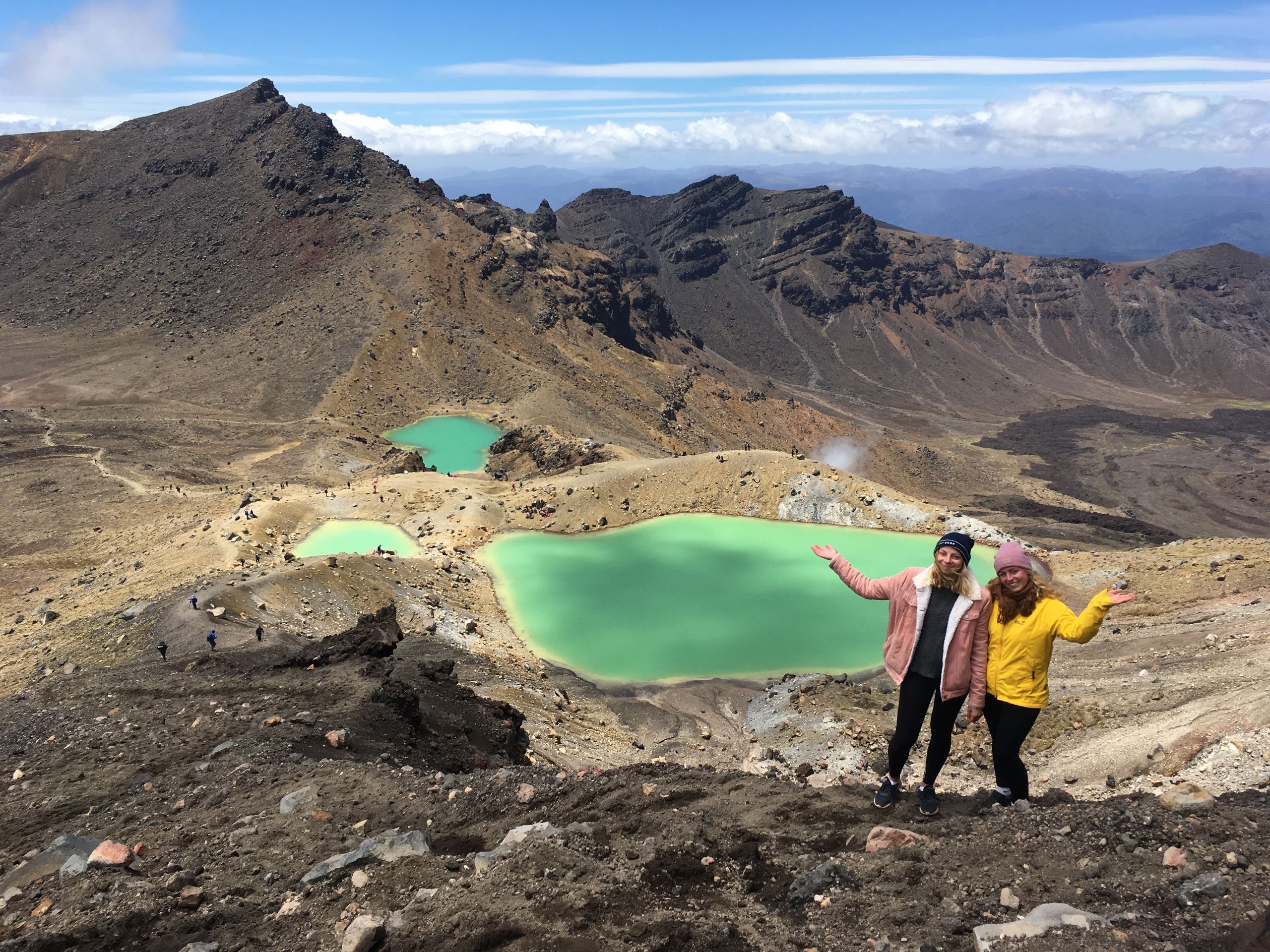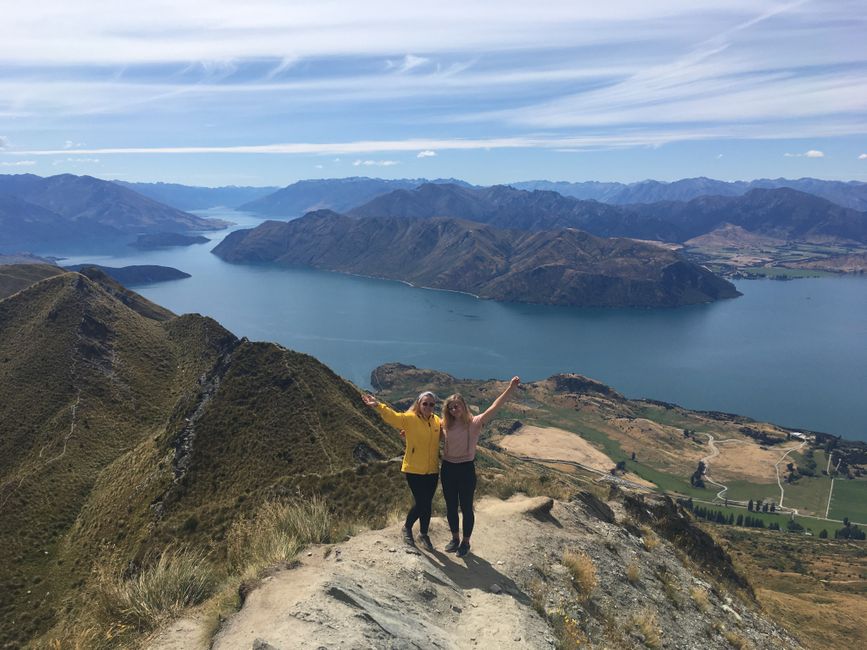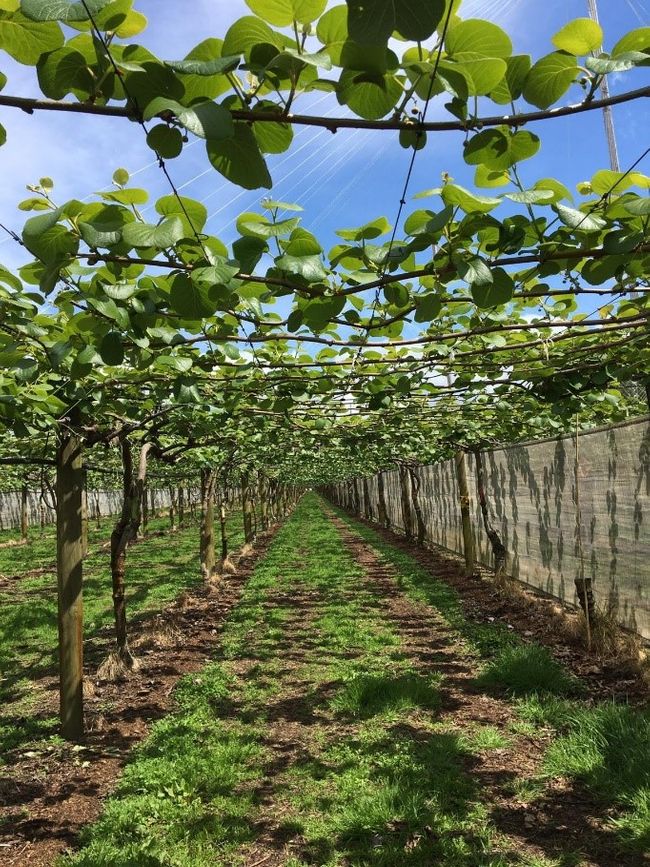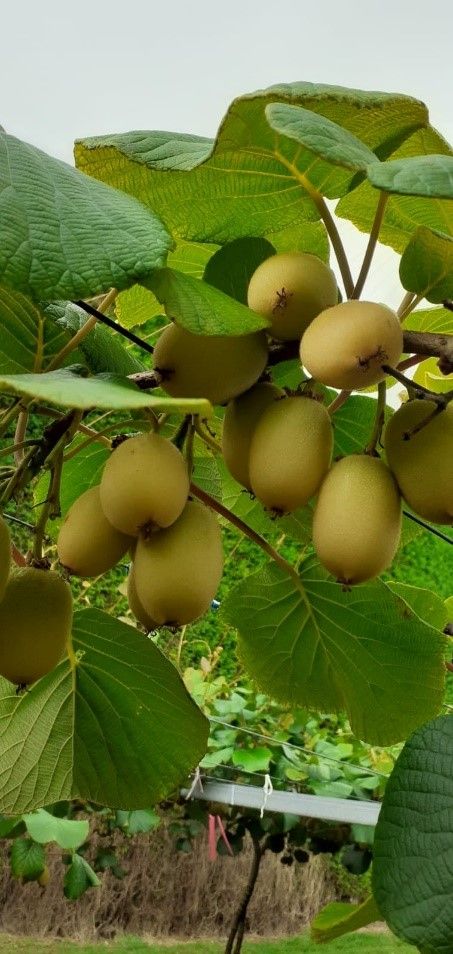#Section 6: Our Experience - Working on the Kiwi Farm
نشرت: 10.08.2020
اشترك في النشرة الإخبارية
Just a few days after our arrival in Auckland, we started looking for a job. We searched on various websites, but mainly in countless Facebook groups for backpackers in New Zealand. That's where we actually found our first job on a kiwi farm in Te Puke. Basically, all we had to do was call and drive over for an interview a few days later. We could have started a week after the call, but the rain spoiled our plans for the first three days. On kiwi farms, no work is done when it's raining.
Typically, work starts at 7:30 or 8:00 a.m. and ends at 5:30 or 6:00 p.m. On the first kiwi farm, we worked 9 ½ hours every day, including an unpaid half-hour lunch break and two paid 15-minute breaks. At first, we were the only workers on our kiwi farm, which was really unusual and often quite strange :D.
Our "boss" was a really nice Indian guy. In fact, most of the workers on kiwi farms are Indians, at least in Te Puke. On every kiwi farm, there is also a manager, who is rarely seen. It was a pretty small field compared to other farms, but the rows themselves seemed very long to us. The first two weeks were pretty monotonous. Our task was to carefully remove one of three growing kiwis that hung together. Each kiwi needs its own space, and when the kiwis get bigger and heavier, 3 or more cannot hang together. Our bosses on this kiwi farm loved their work, and so did the kiwis. That's why we were told to treat the buds like "little babies." You can imagine how often a whole group broke off, and how we felt afterwards. Our work was often checked by the Indian guy in the beginning, but since everyone there was very nice, we never really got into trouble.
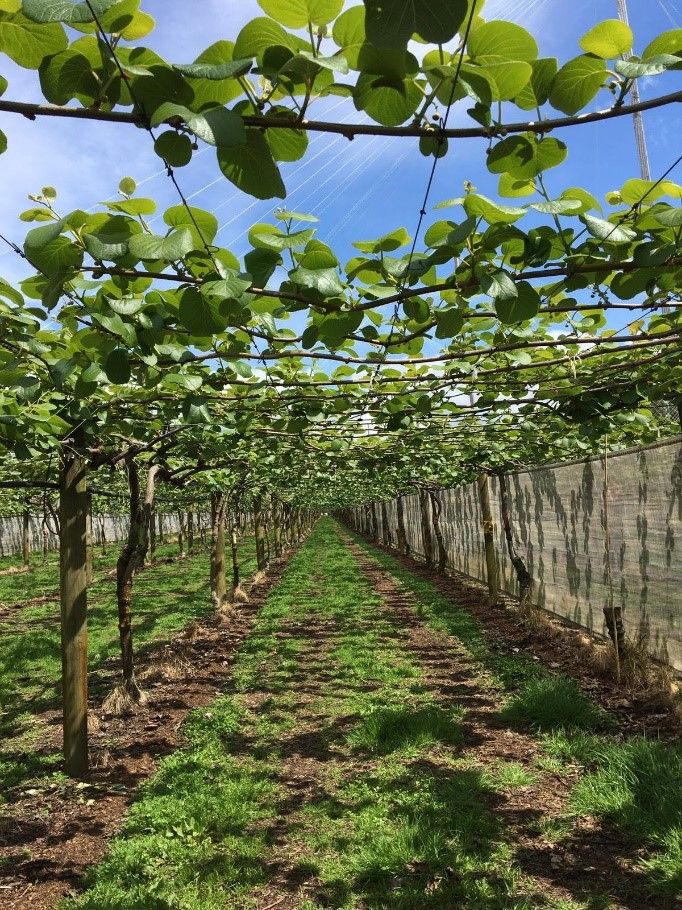
This work can be tough on the neck and shoulders because you have to constantly look up and lift your arms. What makes the long hours more bearable is listening to music. That is usually allowed, but it depends on the boss. In our third and last week on the kiwi farm, we were joined by 3 French people and were assigned a new task that we found a little more difficult than the others: we had to wrap 10 branches of the female trees around the bands hanging there so that they would grow upward and be used for the next year. It was slow progress, but luckily the week went by faster because of the other workers. In retrospect, we noticed that the pay on this farm was pretty good. We were paid $20 per hour and 17% was deducted. The payment for the previous week always takes place on Fridays. Additionally, we received the so-called payslip every week, which lists the payment with tax deduction in detail. This way, you can check the accuracy of your working hours. After three weeks, we quit to travel for a week. We really liked the farm, but the weeks seemed much longer to us, so we wanted to try another farm.
We found the job on the second kiwi farm through a job ad on "Indeed". All we had to do was send a text message to the specified number and immediately received a response that we could start right away. On the first day, we filled out the employment contract and noticed some differences from the other kiwi farm. Our boss here was also a young Indian, but he was completely different from our boss at the first kiwi farm. We were the only backpackers on the farm, and he always treated us differently (worse) than everyone else. That was pretty annoying, but the farm was also very good. The kiwis were a bit bigger now and we still had to remove many of them, but we also had to prune kiwi plants with hedge shears or crush buds so that they wouldn't continue to grow.

There were many other workers who were the same age as us, and we had to drive to a different farm every few days. Our boss was always accompanied by his sister, her husband, and his father. In short, his whole family worked there. Time flew by much faster there, we had different tasks, and work is simply better with more hands. We didn't mind working half an hour longer every day than on the first farm, from 8 a.m. to 6 p.m. The break times remained the same and sometimes we were allowed to leave earlier.
Both work experiences had their advantages and disadvantages. On the first kiwi farm, we got along well with the supervisors and the earnings were very good, but time passed more slowly and the work was monotonous. On the second kiwi farm, we didn't get along with the boss as well, but the other workers were very nice and the work itself was better. I think working on a kiwi farm is just part of Work & Travel in New Zealand. Of course, you can also have bad luck and end up on a kiwi farm with really strict bosses, but I think if it had been really horrible, we could have simply quit and looked for something else. There is always work on kiwi farms.
-> #7 Cost Breakdown follows
اشترك في النشرة الإخبارية
إجابة
